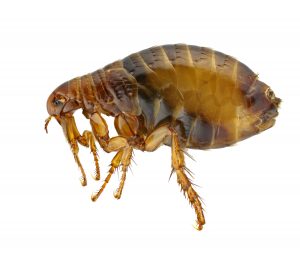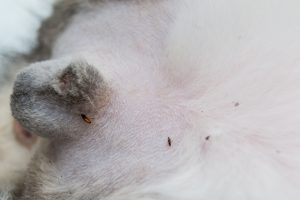Why and How Fleas Become a Problem
Fleas are persistent pests that can infiltrate your home through various means, such as hitchhiking on pets or infested items. Once indoors, they quickly establish themselves, infesting carpets, bedding, furniture, and other areas where pets and humans spend time. Fleas feed on the blood of their hosts, causing discomfort and potential health issues, such as allergic reactions and dermatitis.
Identifying Fleas: Spotting the Culprits

Essential Safety Tips for Flea Control
When dealing with a flea infestation, it's important to prioritize safety for your family and pets. Follow these essential tips for effective flea control:
- Vacuum regularly: Vacuum carpets, rugs, upholstery, and pet bedding to remove adult fleas, eggs, and larvae. Dispose of the vacuum bag or empty the canister in an outdoor trash bin to prevent re-infestation.
- Wash bedding and fabrics: Launder pet bedding, blankets, and other washable fabrics in hot water to kill fleas at all life stages.
- Treat pets: Consult your veterinarian for appropriate flea control products for your pets. Regularly use flea preventatives and consider treating outdoor areas where your pets spend time.
- Maintain a clean environment: Declutter your home and keep it tidy to reduce hiding places for fleas.
Potential Threats and When to Seek Professional Help
Flea infestations can lead to more than just itchy bites. These pests can transmit diseases to both humans and animals, including tapeworms and certain types of bacteria. Additionally, severe flea infestations can cause anemia in pets, especially in young or debilitated animals.
If you've tried DIY flea control methods without success or if the infestation is severe, it's time to call in professional help. My Pest Pros, your local pest control experts, have the knowledge, experience, and effective treatment methods to eliminate fleas from your home. Our licensed technicians will conduct a thorough inspection, develop a customized treatment plan, and provide ongoing monitoring to ensure long-term flea control.
Conclusion
Don't let fleas take over your Virginia home. By understanding the problem, identifying fleas, implementing safety tips, and knowing when to seek professional help from My Pest Pros, you can regain control and enjoy a flea-free environment for you and your beloved pets. Say goodbye to fleas and hello to peace of mind. Schedule your treatment today!
